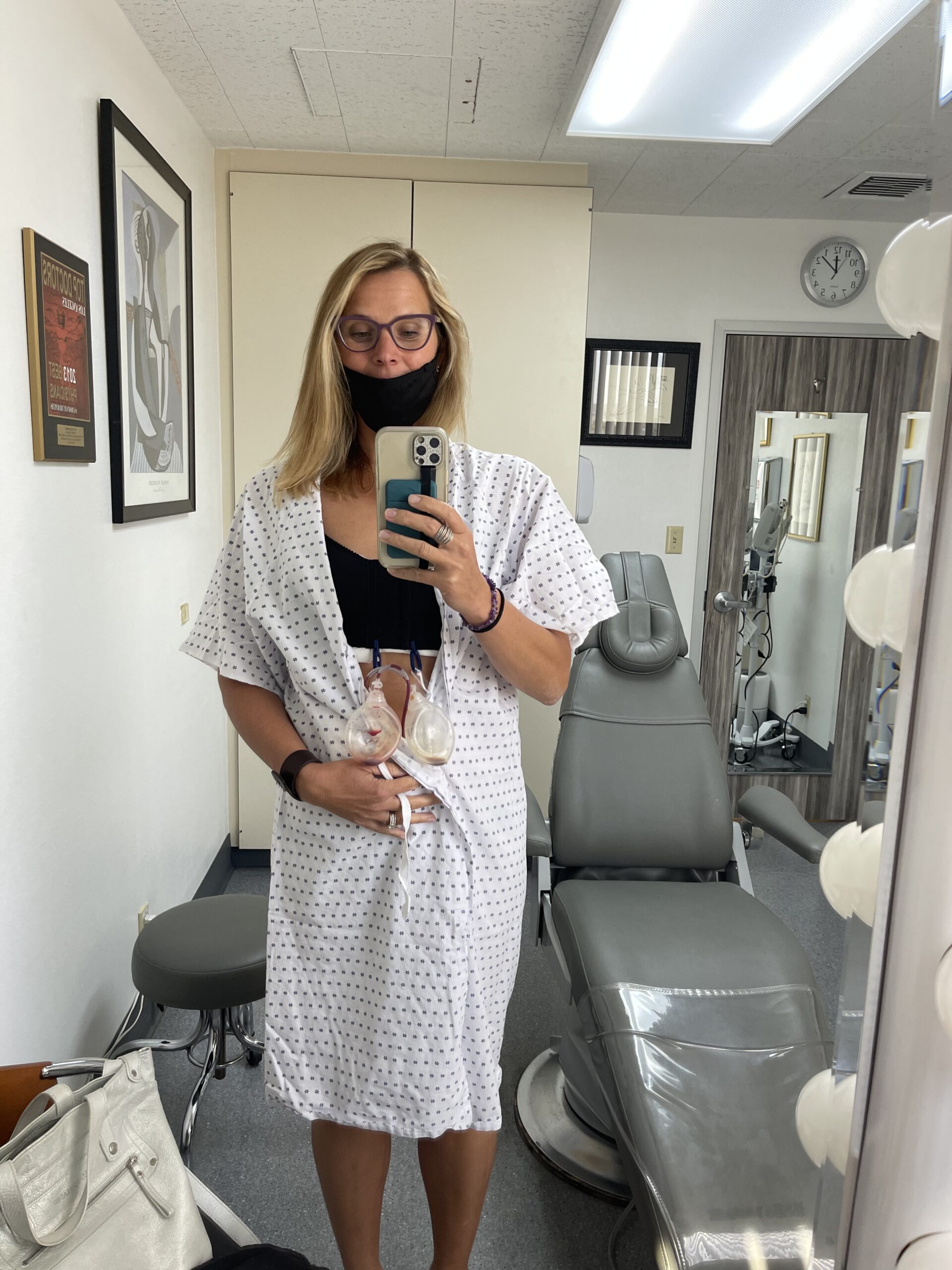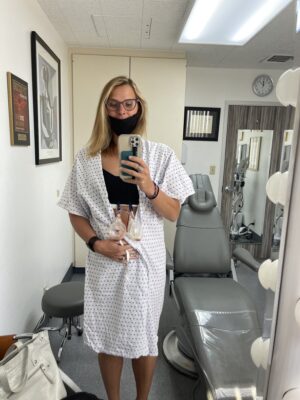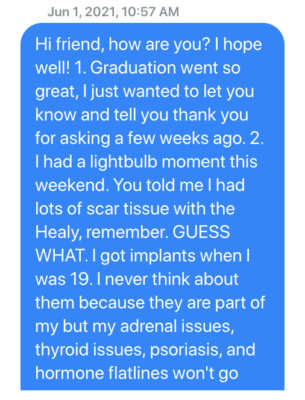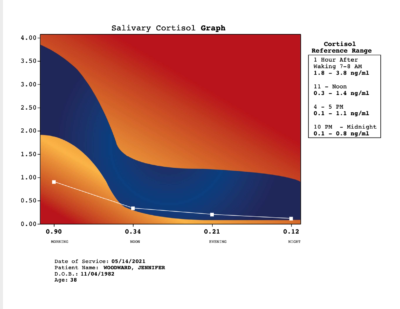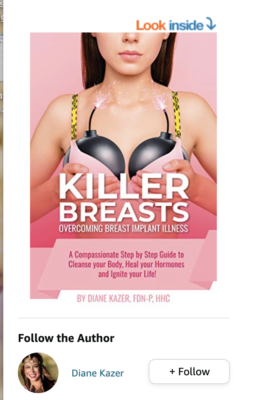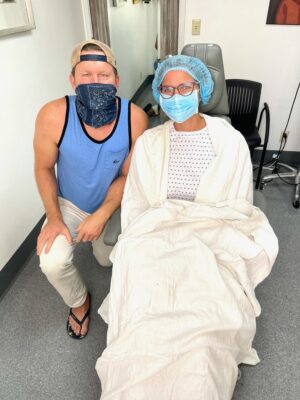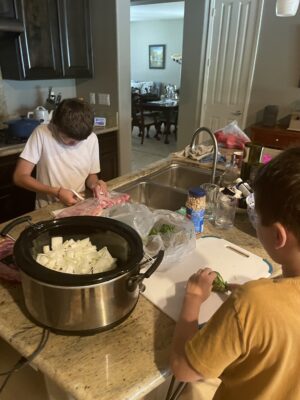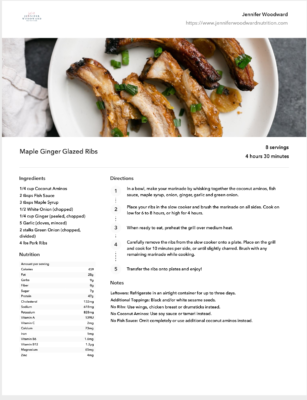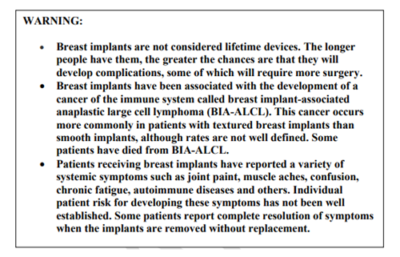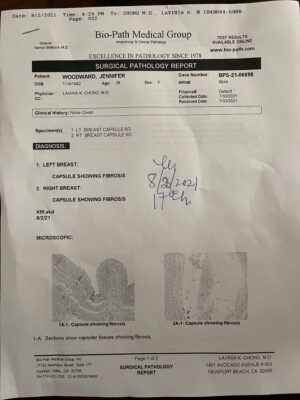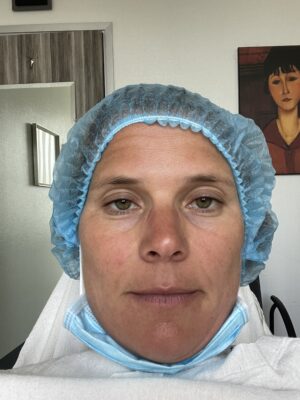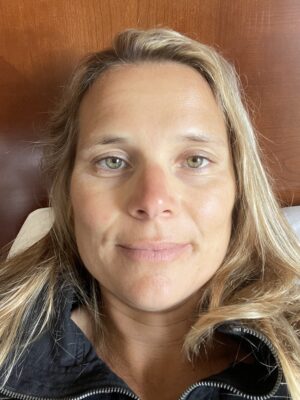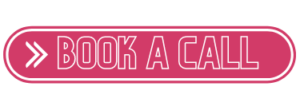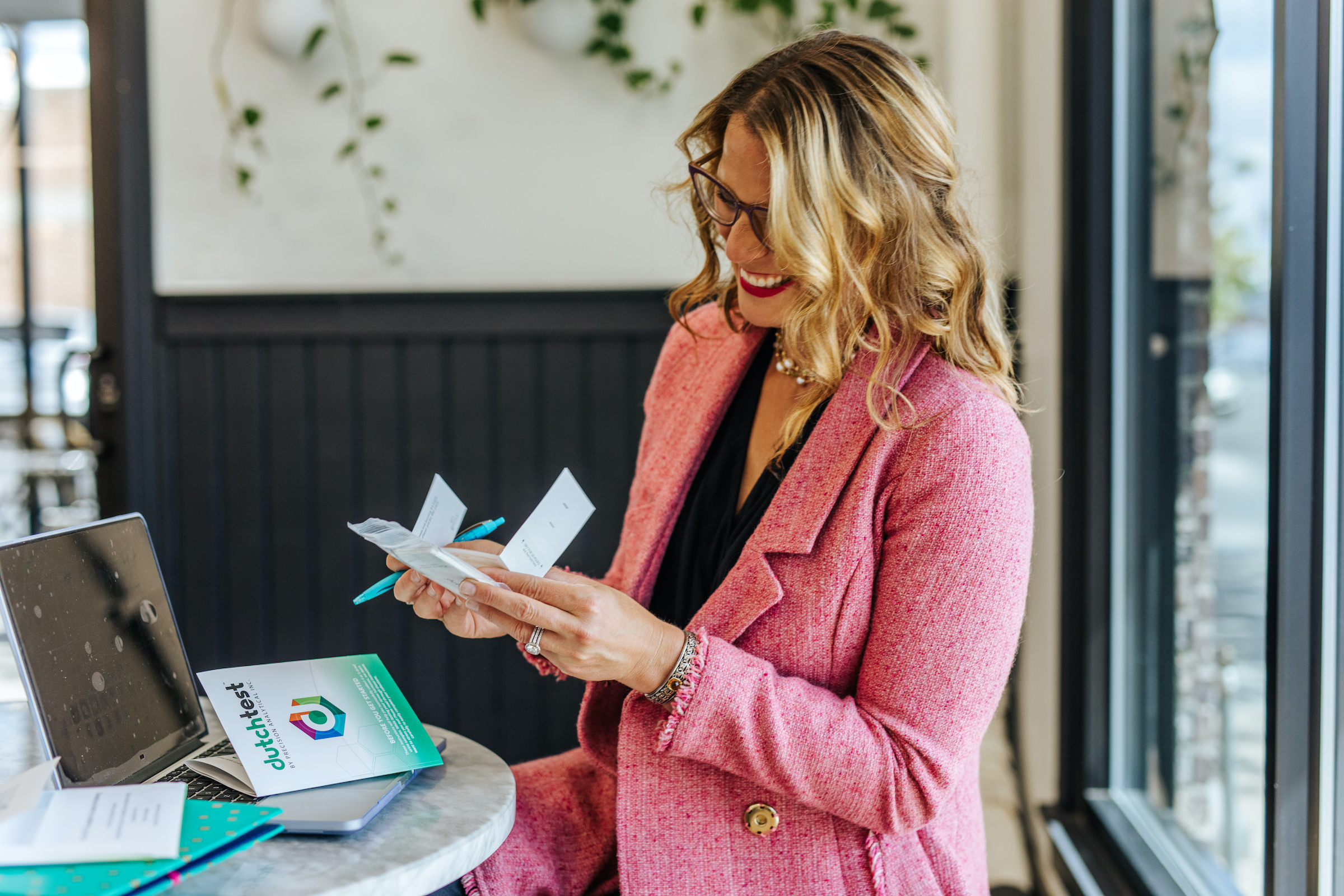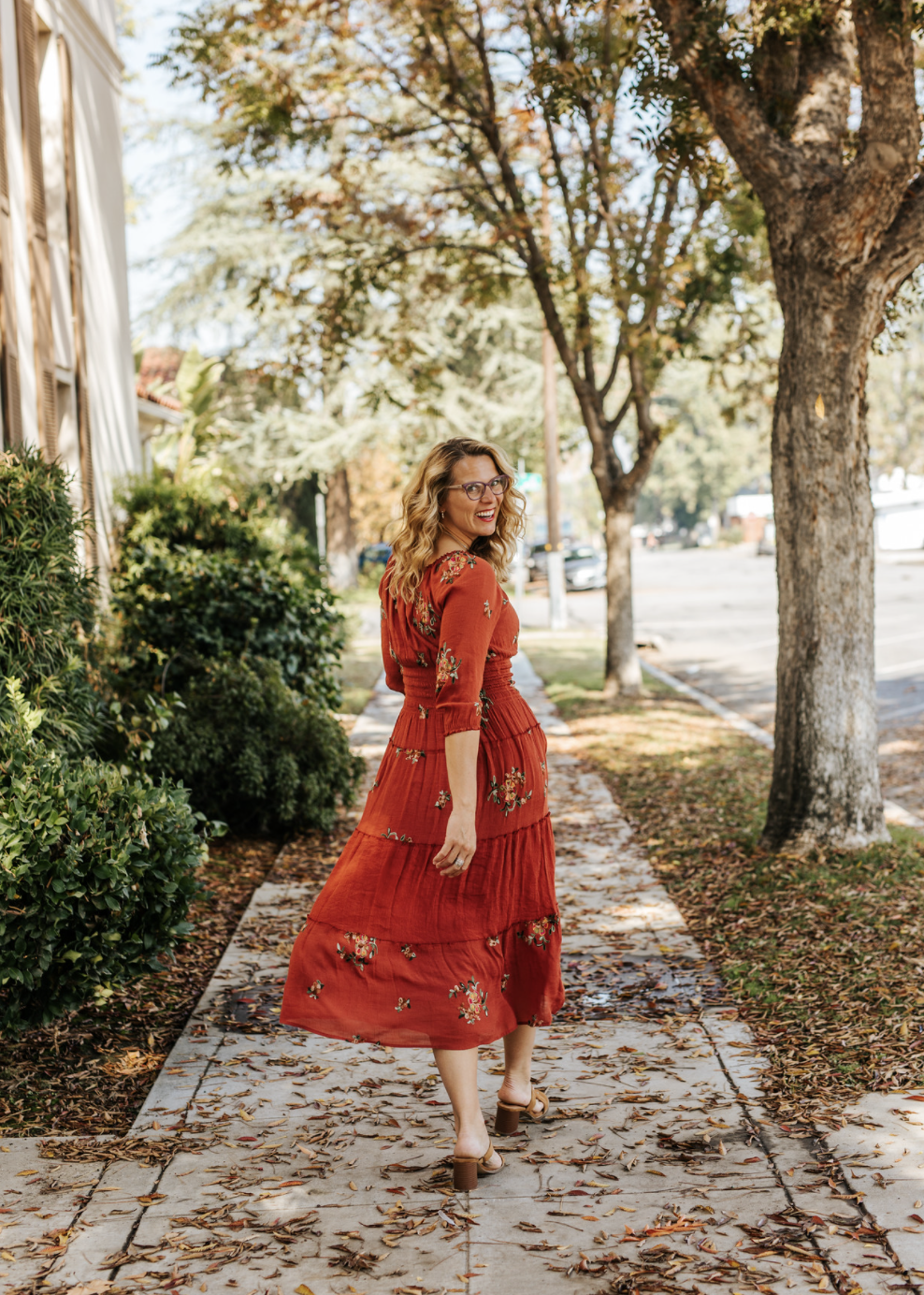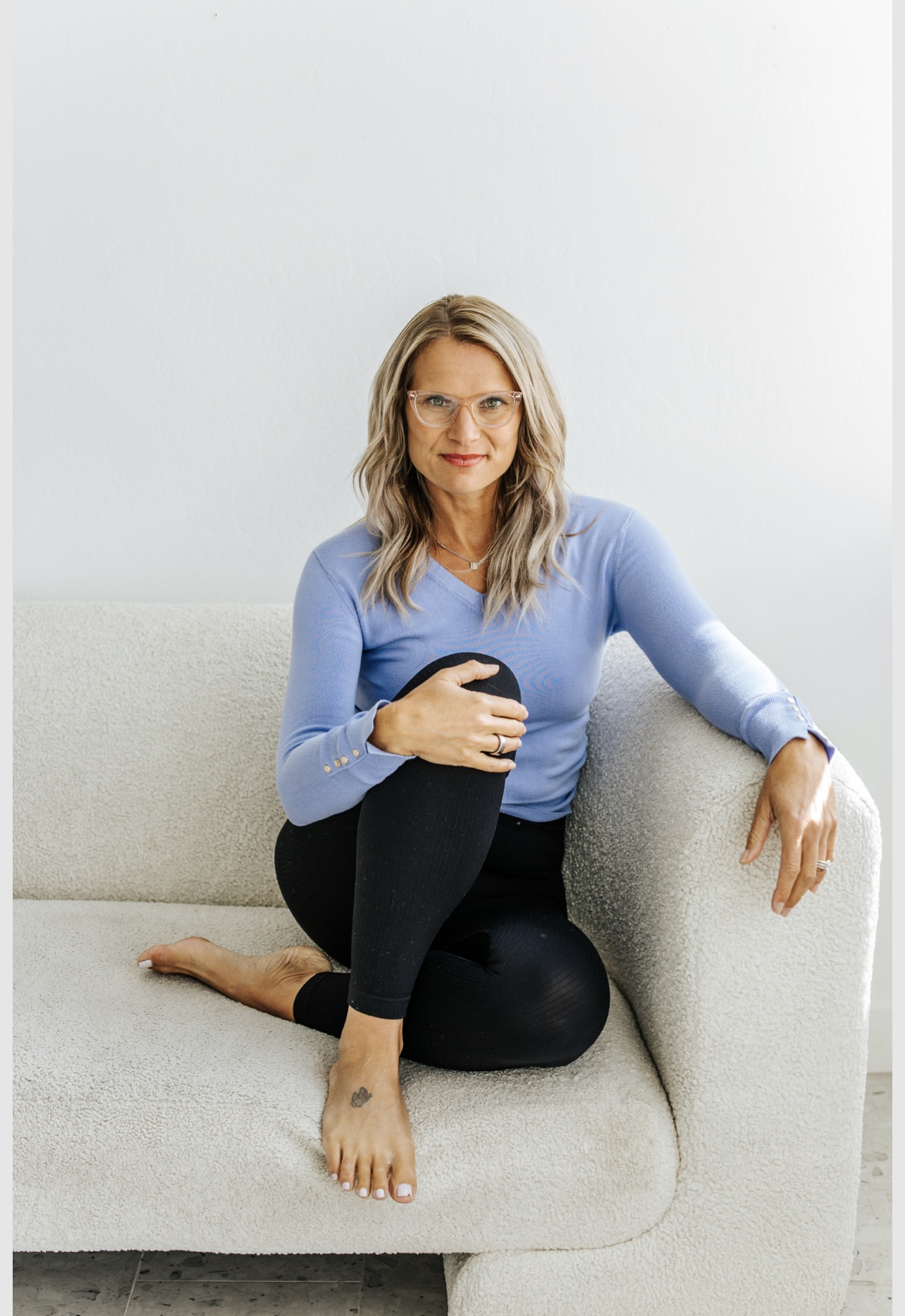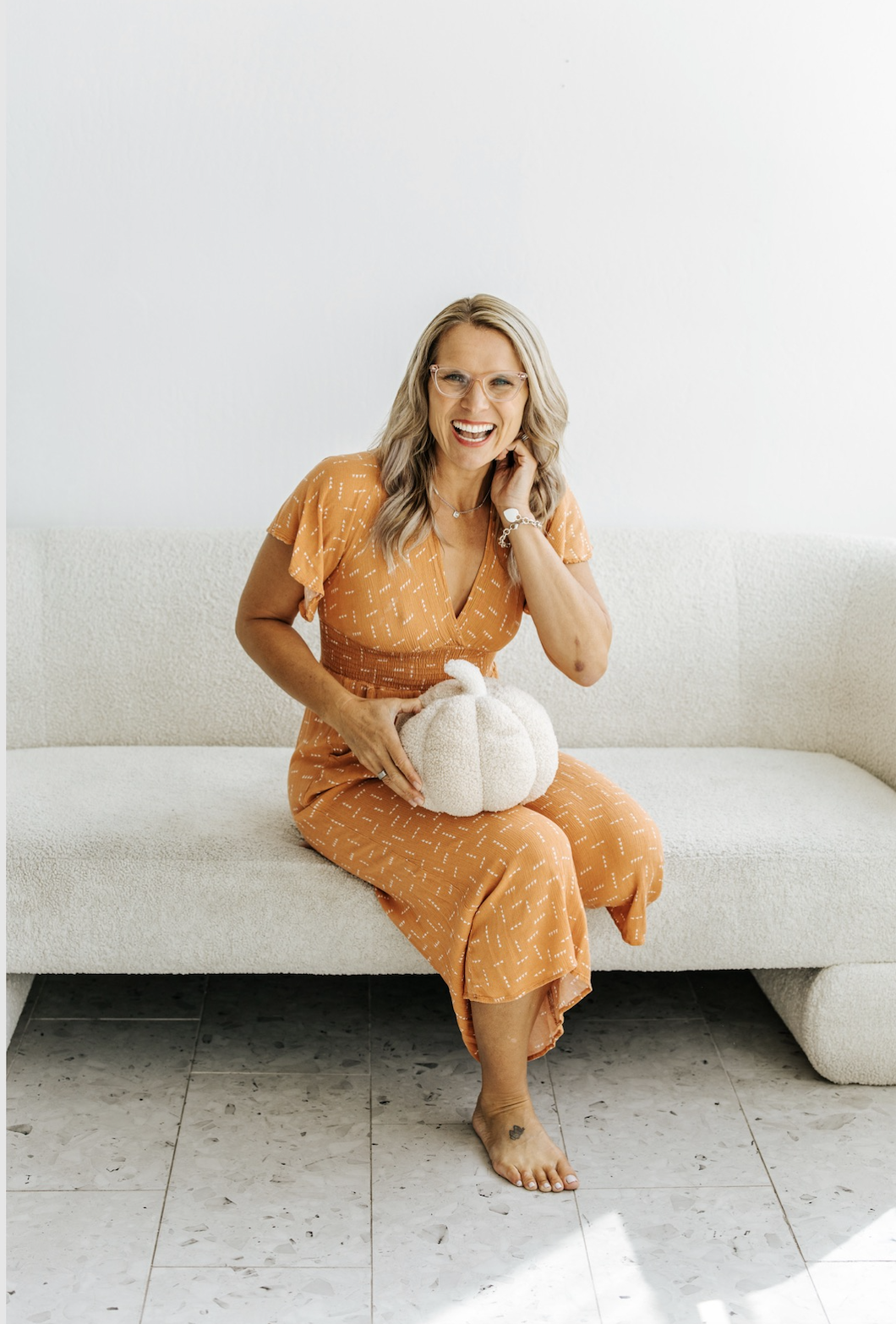Five Lessons I Learned the Week After My Explant: Breast Implant Illness
In case you didn’t know, on July 30 I had my breast implants removed. I elected to get smooth saline implants at the age of 20 for a myriad of reasons that I no longer judge myself for, and I’ve had my implants ever since.
I never had a “re-do”, and I rarely noticed them. They were just part of me for over half my life. I’m tall and athletic so most people just assumed big boobies came with the territory, though I was always open about the fact that my boobs were indeed fake.
For the past few years I had occasionally entertained the idea of removing them, though I never gave this thought enough attention to make any forward progress. Life was too busy. I didn’t want to go under the knife again. A few years ago Beau and I had also tossed around the thought of re-implanting as women are instructed to do every 10 years or so, but I have four kids and two jobs and lots of responsibilities and an elective surgery seemed like an incredible hassle.
But recently, a series of events happened that led me to realize that my implants weren’t the friends I had always assumed they were.
But Everybody Has Implants, Right?
Let’s start it off today by saying that I don’t think I have been suffering deeply from Breast Implant Illness. The title of my blog today is to bring awareness to the fact that Breast Implant Illness (BII) is real and that countless women have suffered excruciatingly and unnecessarily from their body’s reaction to their silicone and saline implants.
I of course was also affected by this problem, but to a lesser extent than many other women- by the grace of God. The internet abounds with stories of women who went through medical hell trying to figure out what was going on with their bodies before coming to the realization that their implants were indeed the problem. I read story after story and listened to podcast after podcast where the women affected by BII uttered the phrase, “I felt like I was going to die”.
I get the privilege of working with amazing clients when I do private coaching. These women are hurting and exhausted and confused by the apathy and apparent cluelessness of the traditional medical system. They hold full time jobs and care for multiple children and love their husbands selflessly and serve their church bodies and communities all while feeling like crap. Their struggles are so real.
Yet not one of them has ever told me that they felt like they were about to die.
On patient-to-patient sites like The Heal Is Real and Breast Implant Illness and Healing with Nicole, lots of women reported feeling these exact feelings of mental and emotional doom, and a physical shutting down of their bodies.
I read these stories for understanding and strength in the weeks preceding my surgery.
With that in mind, I wanted to share Five Lessons I Learned The Week After My Explant.
Lesson One: Listen When God Talks To You
I’ve been asked a lot over the last few weeks why I decided to explant. The truth is, I didn’t really decide it for myself. The Lord gave me a few clear signs and I figured I better listen. I don’t usually think that God talks to me except through His Word, but when a whole mess of congruent signs come at you all at once, you should probably take that into account. So I did.
Here are a few of the things that happened over the last few months.
- My friend Becca told me I was full of scar tissue. She graciously ran a series of scans on me with her FDA-cleared microfrequency scanner. Each time she scanned me, she reported that her Healy had found large amounts of scar tissue in my body. I admittedly scoffed. “I’ve never had a C-section”, I reported. “I’ve never broken a bone, or had any surgeries. I’m healthy“. Kind soul that she is, she nodded understandingly and quietly told me that she’s never known the Healy to be wrong. I put it off. I feel bad about that now.
- My colleague and mentor Victoria confided in our functional health coaching team that one of the clients in our hormone healing program was making great progress in her healing journey but would never fully heal until she got her breast implants out. Weird, thought I. I’ve got implants, and I’m perfectly healthy. I’m sure lots of women enjoy robust health even with their gorgeous, perky, fake boobies. I put it off. I feel bad about that now too.
- I retested my steroid hormones just for funsies and was shocked and discouraged to find nearly flatlined cortisol. Cortisol is our main stress hormone and I’ve been working on building up my reserves for years. I practice what I preach. I do a lot, but I also rest a lot. I sleep well and eat well. I’m committed to a holistic healthy lifestyle and therefore getting my test results made me want to cry. I had also started taking some thyroid hormone with the help of my nurse practitioner due to low thyroid hormone levels and continuing fatigue. The T3 ended up pooling in my system and made me feel worse, not better. I sought counsel about this. I hired a coach to help me (coaches need coaches too!) I learned that my low iron levels and low cortisol levels made it impossible to ferry T3 into the cell and therefore the thyroid hormone was just sitting in my bloodstream, unable to be utilized by my metabolic processes. Dry skin and hair, constipation, and energy issues were still plaguing me. My body was not able to utilize hormones or even vitamins. I kept getting this feeling that I was blocked. Something was blocking my body from proper digestion and absorption. Later I learned that plastic will do that in a body.
- I got a request to download a book in my email inbox from the inimitable FDNP Diane Kazer. Diane is the woman who unknowingly led me to become an FDN. I watched a series of her YouTube videos and realized that I could get trained to heal my own hormones, just like she did. Diane was a professional athlete and a figure competitor and a BII survivor who is passionate about helping women heal from BII. I read her book, staying up until the wee hours of the morning to soak up every word. Every page taught me more about the possibility that my lingering health and hormone problems could in fact be due to the toxic bags of plastic housed behind my 36Ds.
These were the signs that led me to think God was leading me toward the explant process.
Lesson Two: The Quiet Strength of a Good Man is No Small Thing
Beau liked my boobies. Like, a lot. We have been together since I was 17. He was with me during the implant and during the five pregnancies and four babies and four rounds of nursing babies and every single moment in between. He was fine with my little boobies when we got married. But he never complained once about the larger ladies.
So when I told him that I felt like I was being led to remove my implants, he was a little taken aback. We had a long discussion about health, expectations, vanity, Jesus, and finances. Midway through the discussion, he excused himself to pour a stiff glass of bourbon and returned to toast my boobs (“we had a great run”).
In the end, he told me he supported me 100% and he wanted to help me get healthy and feel strong. He also told me that he wasn’t happy about dipping into his IRA to pay out of pocket for this expensive procedure. In the end, we both ended up paying half. That didn’t make the financial implication hurt any less. To be transparent, and because a lot of you have asked: The whole procedure (en bloc full capsulectomy plus a lift) cost $11,700. It’s not cheap.
He was quiet in the weeks preceding the surgery. We didn’t talk about it. Neither one of us wanted to think about it. We were probably a little snippier with each other than usual. But he was there the entire time and prayed for me and with me and took great care of the children and fed everybody with Chipotle and other delicious treats and let me go to bed each night around 7 for a whole week.
It’s a blessing I don’t take lightly.
Lesson Three: Kids Can Do a Lot More Than We Think
Beau is reading The Coddling of the American Mind right now, and keeps sharing nuggets with me. Our collective kids are pretty pampered and most have a fairly cushy life. We mamas want to be blessings to our families and so we serve and serve and at some point or another realize that the kids can handle way more jobs than they may be used to doing.
This week, I had T-Rex arms. I couldn’t lift or push for almost a week. But the house still had to be run. There were so many kind offers of meals and help, and I would have taken them if I really needed to and every offer was so appreciated and touching! But I also have four kids and they can do stuff too.
My little boys especially stepped up to the plate. I sat in a chair and gave directions and they executed some pretty damn tasty meals this week. All of the kids helped with laundry, dishes, cleaning, and even caring for each other. It was the best part of the week.
PS- here’s that recipe:
Lesson Four: There Are No Two Ways About It- Implants are Dangerous
We don’t really think about it because so many of us have implants. We may have signed a waiver before our implant process, but we were assured that implants were safe and only minimally risky.
We were lied to.
As of 2019, breast implants now carry the FDA’s Black Box Warning.
Black box warnings, also called boxed warnings, are required by the U.S. Food and Drug Administration for certain medications that carry serious safety risks. Often these warnings communicate potential rare but dangerous side effects, or they may be used to communicate important instructions for safe use of the drug.
They appear printed in bold font surrounded by a black border on the insert that comes inside a medication’s packaging, and on the drug manufacturer’s website, if it has one (source).
The FDA has even published a report on the problems with breast implants. Find that here.
There are so many problems with implants that it’s impossible to list them all here. I’m going to provide a list of symptoms below from Breast Implant Illness.com.
*I’ve bolded and italicized the symptoms that I personally experienced.
Signs & Symptoms:
Fatigue or chronic fatigue
Cognitive dysfunction (brain fog, difficulty concentrating, word retrieval, memory loss)
Muscle aches, pain, and weakness
Joint pain and soreness
Hair loss
Dry skin, eyes, mouth, hair
Weight gain or weight loss
Easy bruising and slow healing of wounds
Temperature intolerance
Low libido
Ringing in the ears
Heart palpitations
Shortness of breath
Metallic taste in the mouth
Oral thrush (white tongue)
Night sweats
Skin rashes
Insomnia
Estrogen/progesterone imbalance, diminishing hormones, or early menopause
Swollen and tender lymph nodes in the breast area, underarms, throat, neck, or groin
Tingling or numbness in the arms and legs
Burning pain around the chest wall or breasts
Cold and discolored hands and feet
Foul body odor
Muscle twitching
Vertigo
Fevers
Dehydration
Frequent urination
Chronic neck and back pain
Photosensitivity
Nail changes (cracking, splitting, slow growth, etc.)
Skin freckling, pigmentation changes (darkening or white spots), or an increase in papules (flesh colored raised bumps)
Edema (swelling) around eyes
Premature aging
Decline in vision or vision disturbances
Slow muscle recovery after activity
Liver and kidney dysfunction
Gastrointestinal and digestive issues
Sudden food intolerances and allergies
Smell or chemical sensitivities
New or persistent infections – viral, bacterial, and/or fungal (candida)
Reoccurring sinus, yeast, and UTI infections
Throat clearing, cough, difficult swallowing, choking feeling
Chronic inflammation
Feeling like you are dying
Headaches, dizziness, and migraines
Mood swings, emotional instability
Anxiety, panic attacks
Suicidal thoughts
Depression
Hypo/hyper thyroid symptoms
Hypo/hyper adrenal symptoms
Symptoms or diagnosis of fibromyalgia
Symptoms or diagnosis of lyme
Symptoms or diagnosis of EBV or other viral reactivation
Symptoms or diagnosis of dysautonomia
Symptoms or diagnosis of mast cell activation disorder (MCAS)
Common autoimmune symptoms or diagnoses: rheumatoid arthritis, lupus, Sjörgen’s syndrome, Raynaud’s syndrome, Graves disease, Hashimoto’s thyroiditis, scleroderma, multiple sclerosis, ulcerative colitis, and Crohn’s disease.
Breast implants commonly affect the following systems:
- Metabolic (fatigue)
- Neurological (cognitive dysfunction)
- Endocrine (thyroid, adrenal, sex hormones, ADH)
- Immune (viral, fungal, bacterial infections, and formation autoantibodies)
- Digestive & Gastrointestinal (dysbiosis, leaky gut, malabsorption, food intolerances)
So there you have it. Are you in the same boat? Do you have symptoms like this that won’t go away no matter what?
Lesson Five: The Truth is Out There, The Community is Strong, and Our Bodies are Made To Heal
Any other X-Files fans out there?
Now that the tide is swelling toward breast implant illness awareness and advocacy, there are tons of resources out there to help support you on your journey. You are not alone!
It gave me great strength and comfort to ask questions to women who have had explants. It helped me a ton to read books and blogs and resources and social media posts. I want to share some of those resources with you.
Books
The Naked Truth about Breast Implants: From Harm to Healing by Dr. Susan Kolb (an incredible clinical resource written by an MD)
Killer Breasts by Diane Kazer
Let Me Get This Off My Chest by Tara Hopko
Websites
Facebook Groups
Breast Implant Illness and Healing with Nicole
Recommended Surgeons
Dr. Lavinia Chong (my personal physician who came recommended by a friend. I 100% recommend her start to finish).
Dr. Vip Dev (at one point in his long practice he saw more breast cancer patients than anyone in the country and can do excellent en bloc capsulectomies right here in Bakersfield. I went straight to my friend’s recommended surgeon without exploring other options, which is the reason I chose (and loved!) Dr. Chong).
The community of women who are looking to learn truth, heal their bodies, get back to caring for their families, and support other women is very strong. I learned this early on in my journey.
I was nervous to share my journey. It’s embarrassing to talk about your boobs. My kids’ friends are on my Instagram. My extended family sees my social media. I am active around town. It’s vulnerable. While the vast outpouring of love and support and prayers and kindness and offers to help have been humbling, there have still been hurtful comments. In my line of work, this is not unexpected or unusual, but it’s still unnerving to be so open with…like, people.
I was encouraged by some of my trusted friends and colleagues to share as this information might be able to help a few women. That’s my aim and my goal and my prayer. I want to answer your questions, and allay your fears, and pray for you. I want to be open and truthful about something that’s kind of weird. I figure since I talk about constipation on live TV, I can talk about breast implants.
Anyway.
Let’s finish with a few more steps of this journey. I was going to share a photo of the capsule, but it’s nasty and my blog is PG-13. If you really are passionate about seeing it, email me and I’ll think about it. My doctor took photos and video during the procedure and gave me evidence that she was able to remove the full capsule. I very much appreciated this about her. It’s very important to remove the capsule and not just the implant as the capsule can harbor silicone, toxins, viruses, pathogens, and other gunk. Out, damn capsule.
Five days after the surgery, I had to go back down to the office to get my drains removed. That part sucked. The drains were awful. They were clunky and hot and itchy and although I knew they served a great purpose, I resented them the whole time. The body drains blood and fluid to the tune of about 25 total ccs each day so that a seroma does not form in the empty place where the implant used to be.
Here’s a little rundown of that day:
Lastly, Dr. Chong sent specimens of my capsules to a lab to make sure there were no markers for cancer or any other problems.
Nothing to be concerned about. There was fibrosis, but that just means that the tissue was thick and fibrous- scars, if you will.
Do I Feel Different?
In short, I do. I feel lighter. I feel more like myself, if that makes sense. I feel grateful. I feel strong. I feel content. I feel safe in the Lord and bathed in prayer.
My boobs are still swollen and sore. They are purple and yellow and very inflamed around all of the stitches. They itch and hurt and every few hours I feel zinging bolts of electricity flash through my chest (“the nerves waking up!“, my nurse cheerfully reassured me).
I am clearly healthier already. Look at my face one hour pre-op. I had slept well the night before, I hadn’t had any alcohol in over 2 weeks, I rarely eat sugar, I was getting all of my protein, and despite being a bit nervous about the surgery, I wasn’t experiencing any anxiety or mood issues. I’m facing a floor-to-ceiling window here with plenty of natural light to highlight my face.
But look.
Out of curiosity, I took another photo 2 hours post-op. I was back in my hotel room, laying down with natural light also coming in through the window. I’m on Vicodin and the final effects of anesthesia and my IV bag had been giving me fluids throughout the 6 hour procedure.
My inflammation has already started to decrease. And it continues to do so. I thank the Lord for this.
Remember, if you think that this issue or any other issue is contributing to your hormonal and period problems, I’m here for you.
Book a call with me here:
A Common Fear
The most common fear I heard from women in the explant community was not what if the pain is excruciating?
It was what if nothing changes?
What if you spend the time and energy and money to go through the explant process and you’re still exhausted and rash-y and hormonal and headache-y feverish and in pain?
What if it’s all in your head?
I can assure you, it’s not.
Maybe you won’t feel 100% better. Maybe you will, but maybe it takes a lot of time. Maybe you’ll feel good settling for 80%. There’s no perfect this side of heaven anyway.
It’s only been a week and I’m already feeling better. Instead of the slightly gray cloud that I’ve been battling for awhile, I’ve got some optimism. I’ll finish my master’s and maybe start my Ph.D. I’ll keep learning conversational Spanish. I’ll pick my viola back up again. I’ll rejoin Prayer Moms and Bible Study Fellowship and start making more plans with friends. I’ll counsel and cook for and pick up after all of these children with more grace and gratitude. I haven’t really felt like doing these things for awhile, but I can feel the tide shifting.
Life is good.
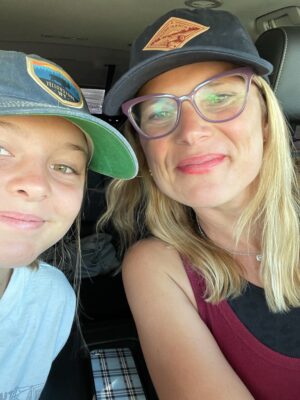
my favorite girl and me, a few weeks pre-explant
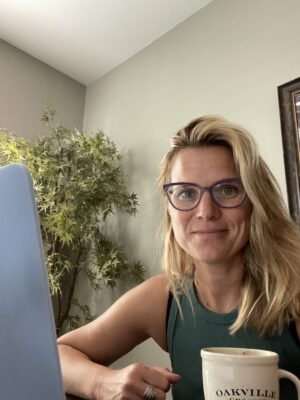
me, 7 days post-explant, drinking Chai tea while working on this blog. Kitten in lap and all of my favorite people puttering around the house on a lazy Saturday morning. Good stuff.
Be well,
Jennifer

